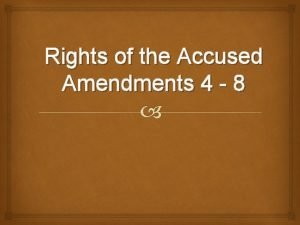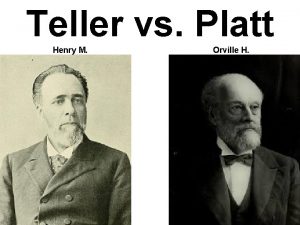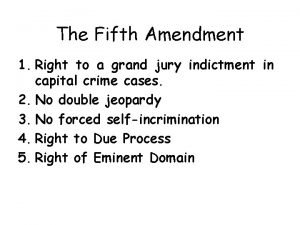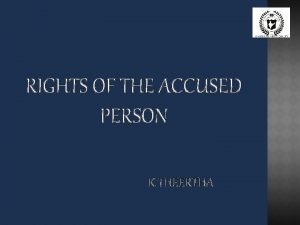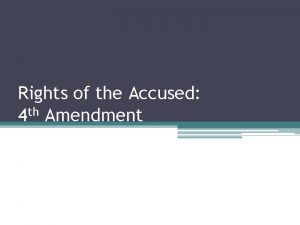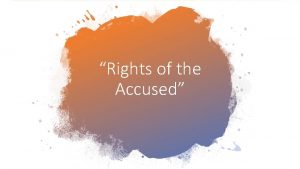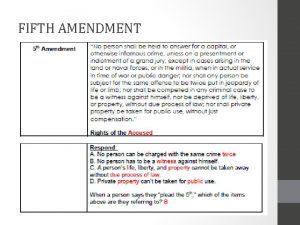Rights of the Accused 4 th Amendment Search







- Slides: 7

Rights of the Accused • 4 th Amendment- Search and Seizure • Search Warrant • Probable Cause • TLO v. New Jersey (Reasonable suspicion in schools) • Exclusionary Rule-evidence found illegally cannot be used in court. (Lets crooks “off the hook”) – Mapp v. Ohio 1962 (Exclusionary rule applied to state police)

2 nd Amendment Mc. Donald v. Chicago, 2010 The 2 nd Amendment right to keep and bear arms for self-defense is applicable to the states.

th 5 Amendment • Due Process • Double Jeopardy Can’t be tried for the same crime twice. No Self Incrimination. You cannot be forced to testify against yourself.

Miranda Rule Miranda v. Arizona (1966) • Under this rule, before police may question a suspect, that person must be: 1. Told of his/her right to be silent 2. Warned anything he/she says can be used in court. 3. Right to an attorney. 4. You may stop questioning at any time.

th 6 Amendment • Speedy and Public Trial • Trial by jury (7 th Amend. for civil cases) • Right to face (cross-examine) witnesses and bring in witness on your behalf • Right to an attorney -Gideon v. Wainright (1963)

th 8 Amendment • No excessive bails and fines. • No cruel and unusual punishment Death Penalty? Court ruled death penalty not cruel, states cannot put minors or mentally disabled to death

Important Protections • Grand Jury- Federal prosecutors present information to this jury and the jury decides if a person can be accused of a crime. • Bill of Attainder- Law that inflicts punishment without a trial. Protects us from the government. • Writ of Habeus Corpus- Court order directing an officer to bring a prisoner before the court and show cause for their imprisonment. • Ex Post Facto- A law applied to an act committed before its passage. Example: School changes graduation requirements, now you need to take more classes.
